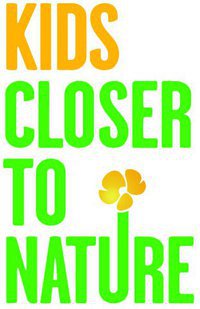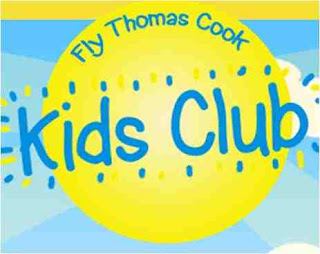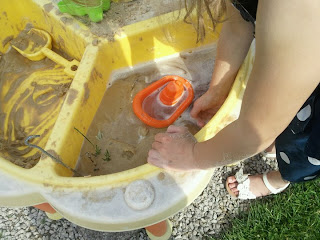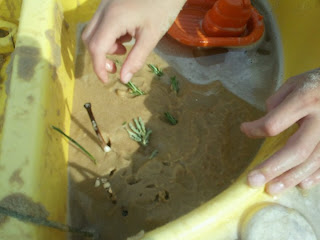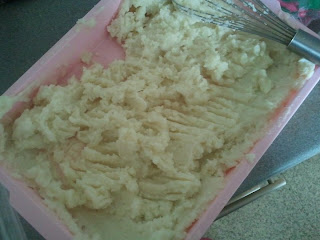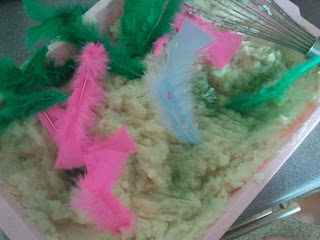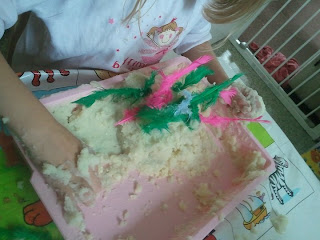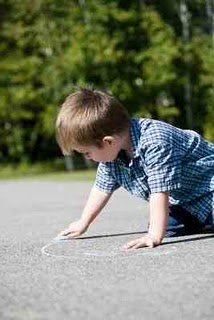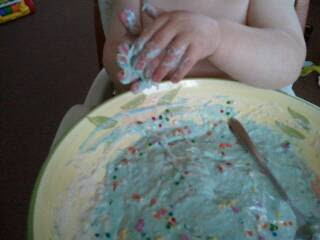Playful Learners has a new home. We have moved our site over to wordpress which will make it a lot easier to share our ideas with you. You can find us at www.playfullearners.com
Still to come......
Playful Learners will soon be expanding with more Early Years writers joining our team. We will also be introducing NEW Ebooks and resources, that will be available for you to download at your leisure.
Friday, 22 July 2011
Saturday, 16 July 2011
Kids Closer To Nature
Children are increasingly spending time indoors on computers and watching TV. The Nature Adventure Club provides parents, teachers and children with exciting incentives to go outside and learn about all aspects of nature throughout the seasons, while keeping the computer as an additional learning tool. So if you're stuck for ideas on what to do with your children or mindies this summer have a look at some of the activity suggestions they have come up with, you won't be disappointed.
The nature adventure club encourages children to get involved using a challenge system which they can take part in, by printing off the challenges, or you can order a pass online and you will receive a pack through the post. You could work these activities into your planning over the summer, or for parents, maybe plan a day out to achieve a few of them at a time.
Labels:
close to nature,
nature,
outdoor play
Friday, 15 July 2011
Fly Thomas Cook
With summer on the way parents around the county will be planning how they will be planning their summer holidays and hopefully some of you may even get the chance to get away some where nice. Thomas Cook have been working hard on helping you to get your children prepared for a holiday in the sun with their new fantastic holiday and have designed a site especially.
Fly Thomas Cook Kids Club offers a selection of games, advice and other tools to prepare children for their holiday and to keep them occupied when they may need to wait for their plane or spend time in the shade.
We thought we would try some of the games out to see how good they are at occupying young children and how well they can prepare children for their holiday. The site offers a selection of printable games such as mazes, spot the difference and my favourite a memory game which helps children to learn simple names of things in Turkish.
P found the maze very easy and these are normally quite hard for her to complete, the spot the difference was very good and took her a good ten minutes to complete and she enjoyed giving it a try. The memory game I found it be very educational and I was amazed at how quickly P picked up the words. I found that she was able to recall some of them days later so this activity would make a great way to prepare children if they are going on holiday aboard.
Red Ted Art are currently working with Thomas Cook Kids Club to promote a crafty competition where you could win :
- A child’s digital camera (VTech Kidizoom Plus Multimedia Digital Camera)
- A fab trunki suitcase (Tiger)
- Child’s headphones (for the plane! or to keep things quiet at your destination) (Kidz Gear Wired Headphones For Kids)
- Activity and reading books
- swimming googles
- suntan lotion.
So make sure you pop over and join in the fun
Labels:
Product Review
Tuesday, 12 July 2011
Role play- deserted island
We are strong believers that children will discover the best learning experiences by themselves. As adults we only need to make a variety of materials available for them to use in a way which Sparks their imagination. A great way to achieve successful opportunities for children is to let them explore the outdoor environment and use the materials which they find around them.
Children can enjoy sand play from an early age. As a baby/ toddler it can stimulate their senses and as children grow they are able to use it to solve problems and build.
In this example the child is using the sand to form the shape of an island in the sand tray. Allowing her to explore mixing sand and water together has helped the child to think about moulding and setting a scene.
She used the herb plants around her to make trees on the island. when discussing what she was using them for she explained that the ones laying down had fallen because of the force of the sea waves. She placed a different herb broken up into the water and told me that these were the sea weed.
We would love to hear about some of your children's spontaneous activities and feel free to add a link if you have one.
Labels:
outdoor play,
Role play,
sand play
Friday, 8 July 2011
Tuff spot ideas- Mashed Potato
Tuff spots are a great way to introduce children to a wide range of materials to help children explore their senses and imagination. Tuff spots can be any thing which is flat and has a low rim to allow children to reach in the tray with ease and explore its contents. In this example we are using a cat litter tray, perfect if you don't have a garden.
Mashed potato is a great material for tuff spots.
You can raid your crafts cupboard and add any thing you think to the mix, each time can be a new experience with mash potato. In this example I have added feathers and glitter.
Children love to explore the texture and feel it moving in between their fingers. Smash is a good material because it can be moulded into different shapes like play dough.
Labels:
food play,
sensory play,
tuff spot
Thursday, 7 July 2011
Developing literacy skills outdoors
Children love to play in outdoor spaces and this can be a great way to get children who do not concentrate well sitting down to learn to engage through active games. The outside is full of new and exciting experiences for children to take in and learn from. Listening to the sounds that they find in the garden and looking at what sounds they can make in the outdoors can be an early stage of learning about sounds and leading up to phonics.
Recognising letter sounds can be great fun for children. Here are some simple games to play outdoors with your little ones.
1. Extend the children’s awareness of initial letter sounds by asking questions, for example, ‘How many items can you find starting with the sound ‘s’? Putting up a alphabet line in the garden or using flash cards can also help them in recognising the use of the letter sound, the letter sound its self and the written letter. Challenge the children further by asking them to think of different words starting with the same sounds as ‘grass’ and ‘tree’.
2. Play a sound hunt in the garden. Hide flash cards round the garden and ask them to find that sound and only one at a time. You could hide these next to some thing that begins with that sound to make it easier.
3. Chalk drawing on the floor can encourage them to make letter shapes and practice hand eye coordination.
4. Label equipment around the garden to get them recognising words of objects which are familiar to them.
5. Get your children to collect things which interest them from around the garden. Place these objects in one area then get comfy and use these object to help tell a story. Holder children could then help by drawing pictures to help retell the story later on, turning it into a story book.
Wednesday, 6 July 2011
The benefits to puzzles
No parent will argue that child jigsaw puzzle is truly an educational toy for toddlers and preschoolers. It has been around for a long time. Yet, it's often considered to be more superior compared to most recently-developed child educational toys. This is due to the fact that puzzles are low in cost and children rarely loose interest in them.
Puzzle enhances your child's development by:
- It improves hand-eye coordination since children will have to fit the pieces together properly.
- It develops logical thinking.
- It develops pre-reading skills by enhancing the ability of children to recognize shapes.
- It helps to develop children concentration.
- It enhances social skills such as taking turns and working together
- The easiness to match the piece with the hole in the board (for single-piece jigsaw puzzle) or to each other (for more-than-one-piece jigsaw puzzle).
- Number of pieces.
- Durability and ease of handle
Tuesday, 5 July 2011
Flour play
What you will need:
flour
water
food colouring
decorative sprinkles or glitter (optional)
Directions:
Mix the ingredients together to your chosen consistency.
You can use this activity as an opportunity to discuss texture, colour and sounds.
Labels:
malleable play,
sensory play
Monday, 4 July 2011
Spaghetti Play
Spaghetti play is a simple activity which can be fun for children of all ages and can last for as long as you like.
What you need
It allows toddlers to express how it feels and even use their imagination to pretend it is something else.
Spaghetti
Food colouring
sauce pan
water
tray or large bowl.
Directions
Step 1. Cook spaghetti according to packet instructions.
Step 2. Once you have added the spaghetti to the pan of boiling water add 3 tsp of food colouring.
Step 3. Once cooked drain the spaghetti and leave it to cool before allowing your child to play with it.
Labels:
food play,
malleable play,
sensory play
Sunday, 3 July 2011
Finger paints
Finger paints are easy to find in a lot of shops now days. However here is a recipe for making your own at home:
What you need
2 cups white flour
2 cups cold water
food colouring
Directions
Step 1. Pour the water into a large bowl.
Step 2. Slowly add the flour, while the children are stirring.
Step 3. Once it's all mixed together, divide into smaller bowls and add the food colouring.
TipMake sure your little one has their clothes covered up or strip them down to their nappy, no less stress about mess the more fun the activity will be. Place the paints in easy accessible bowls or trays to help your child/ren choose which colours they want to use.
Labels:
paint,
sensory play
Subscribe to:
Posts (Atom)

